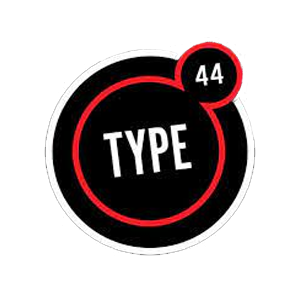BLOG ARTICLES
Why Voting for TRON Super Representatives Matters More Than You Think
So, I was scrolling through some TRON forums the other day, and man, something about the whole Super Representative voting setup felt off at first glance. Like, it’s easy to just click a button and forget about it, right? But hang on—there’s a lot more going on under the hood than most folks realize. Seriously, the way these elections shape the TRON network’s future is kinda wild when you dig deeper.
Here’s the thing. Voting isn’t just some passive checkbox. It’s power. Power to influence how TRON runs, how fast transactions fly, how decentralized the whole ecosystem stays. At first, I thought, “Okay, it’s just a popularity contest for blockchain nerds.” But then I realized it’s way more strategic—like a subtle tug-of-war between different visions for the network’s growth. This part bugs me a little because not everyone votes thoughtfully; sometimes it feels like a popularity contest, but actually, the stakes are pretty high.
Now, don’t get me wrong, I’m biased—I’ve been using the TRON network for a while, and the whole DeFi scene built on top of it is pretty impressive. But the mechanics of voting for these Super Representatives (or SRs) is something that could trip up even seasoned users if they’re not careful. Initially, I thought it was all about locking up TRX and waiting for rewards, but actually, the voting process ties directly into network governance and even the security of USDT-TRC20 transactions.
Whoa! Yeah, USDT on TRON is a beast. It handles billions in volume, and the SRs play a crucial role in validating those transactions. So when you vote for an SR, you’re indirectly impacting the stability of one of the largest stablecoins on the blockchain. It’s kind of like voting for the referees in a game that everyone’s betting on—except here, the stakes are real money and trust.
But okay, let me backtrack a bit. The Super Representative system is often misunderstood. On one hand, it’s a delegated proof-of-stake (DPoS) mechanism designed for efficiency. On the other hand, it introduces some centralization risks, especially if a handful of SRs accumulate most of the votes. Hmm… that’s where things get tricky. The TRON community tries to keep it balanced, but you can’t ignore the human factor—popularity, marketing, alliances, and sometimes just plain luck.
Speaking of balance, have you checked out the tronlink wallet? I’ve been using it lately, and it makes voting for SRs surprisingly straightforward. The interface is slick, not overcomplicated like some crypto wallets out there, and it handles TRX and TRC-20 tokens with ease. Plus, you can manage your USDT-TRC20 holdings without a hitch, which is a big plus for DeFi users on TRON.
Okay, so why does all of this matter if you’re just a casual user? Here’s a thought: the SRs you vote for influence the development of DeFi on TRON, including which projects get prioritized or supported. That means your vote shapes liquidity pools, lending protocols, and even the rollout of new features that could make or break the ecosystem’s usability.
![]()
Check this out—when you cast your vote through the tronlink wallet, you’re not just ticking a box. You’re telling the network who you trust to keep things running smoothly, and that trust has ripple effects. For example, some SRs are more focused on scaling solutions, while others push for tighter security or better integration with other blockchains. Your choice nudges the entire network strategy in one direction or another.
Here’s a wild observation: even though it sounds super technical, the game theory behind voting is kind of like picking team captains in a neighborhood basketball game. Everyone wants the best players, but sometimes the most popular kid gets voted in even if they’re not the best strategist. And that’s why staying informed is very very important. Oh, and by the way, you can change your vote anytime, so it’s not like you’re locked in forever.
Another thing that caught me off-guard was how intertwined the SR voting is with DeFi protocols on TRON. At first, I thought DeFi was just about yield farming and swapping tokens, but voting influences the governance of these protocols too. On one hand, that’s empowering—users have a say. Though actually, the overlap between SRs and DeFi project founders sometimes muddies the waters. That’s a conflict of interest waiting to happen, and honestly, I’m not 100% sure how the community plans to handle that long term.
Anyway, this is where the tronlink wallet shines again. It’s not just a place to store your tokens; it’s your gateway to active participation in TRON governance. The wallet’s design encourages users to vote regularly and stay engaged. For example, it sends simple reminders and lays out SR stats—like votes received, rewards given, and even uptime metrics. All that data helps you make an educated choice rather than just following the crowd.
So what about USDT-TRC20? It’s arguably the lifeblood of TRON’s DeFi ecosystem, but many overlook how its security depends on the SRs you elect. If the SRs don’t perform their duties well, transaction delays or failures could undermine confidence in the stablecoin. That’s why I always stress voting responsibly—because it’s not just a civic duty; it’s a financial safeguard.
Here’s what bugs me about the whole thing: sometimes people treat their tokens like lottery tickets, hoping to snag rewards without realizing they’re also casting votes that influence the entire network’s direction. This passive attitude can lead to concentration of power. And if a few entities control most votes, decentralization—the bedrock of blockchain—starts to erode. It’s a paradox that’s tough to solve.
Still, I get it. Not everyone has the time or energy to dive deep into SR politics. But tools like the tronlink wallet are trying to bridge that gap by making voting accessible without being overwhelming. It’s a small step, but it might just keep the network healthier and more resilient.
Anyway, I’m rambling. To wrap this thought up (or at least attempt to), voting for TRON Super Representatives is more than a checkbox or a passive act—it’s a fundamental part of how the network evolves and secures itself, especially around USDT-TRC20 and DeFi. Sometimes, your simple vote can ripple out in ways you didn’t expect, shaping the ecosystem for better or worse. So next time you log into your tronlink wallet, remember you’re part of that process. And that’s kinda awesome, don’t you think?







